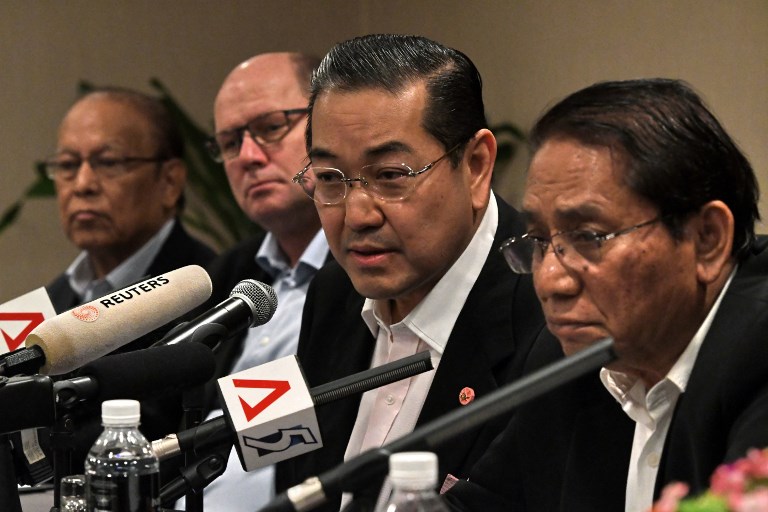A panel advising Myanmar’s Aung San Suu Kyi on the Rakhine crisis said Tuesday it was pleased with some developments, but rights groups cautioned members against being used to cover up alleged atrocities.
Myanmar’s military has forced some 700,000 Rohingya Muslims out of Rakhine and across the border to Bangladesh since August, in a brutal crackdown which US and UN officials say amounts to ethnic cleansing of the minority.
Suu Kyi’s reputation lies in tatters internationally for her failure to speak up on behalf of the stateless group. But she remains a heroine inside the Buddhist-majority country that has branded the Rohingya as illegal immigrants.
The international advisory board which Suu Kyi appointed became mired in controversy after veteran US diplomat Bill Richardson dramatically parted ways with the panel in January, saying he refused to help “whitewash” the crisis.
At a second meeting in Singapore on Tuesday, the group offered some recommendations for Myanmar’s government while also hailing several “positive developments.”
The latter included a looming deal between the Myanmar government and two UN bodies – the UN Development Programme and the UN High Commissioner for Refugees – that it has so far excluded from a stalled repatriation process.
The statement said only that the agreement would likely be signed in the “near future.”
The panel also said Myanmar’s Social Welfare Minister Win Myat Aye was “likely” to visit the Rohingya refugee camps in Bangladesh soon.
That would be the first trip by a senior Myanmar official to the camps since the latest crisis erupted.
In a list of recommendations, the panel urged Myanmar to create a committee to probe rights abuses in Rakhine, develop an anti-terrorism strategy and improve health facilities.
But rights groups warned the board was in danger of serving as cover for a government that has refused to cooperate with UN investigators or condemn troops accused of waging the ethnic cleansing campaign.
“Members of the Rakhine State Advisory Board must not allow themselves to be used as a shield to cover up the military’s crimes in Myanmar,” said James Gomez, Amnesty International’s Southeast Asia director.
The advisory board’s statement did not mention the Rohingya – whose name Myanmar rejects – or recommend cooperating with UN factfinders and a special rapporteur, who have been barred from Myanmar.
“That’s grossly irresponsible. There’s nothing pragmatic or savvy about that approach. Peoples’ lives are at stake,” said Matthew Smith from Fortify Rights.
“There are some redeeming recommendations here, but the concerns that this body would become a cheerleading squad appear more reasonable by the day,” he added.
Myanmar’s army says its campaign was a legitimate counter-offensive aimed at rooting out Rohingya militants who staged deadly attacks on police posts.
But the civilians streaming into Bangladesh have told harrowing accounts of rape, arson and murder at the hands of soldiers and Buddhist vigilante mobs.
A repatriation deal signed in November between the two countries still has yet to see a single Rohingya refugee return, with most unwilling to sign up unless their safety and rights can be assured.





Reader Interactions